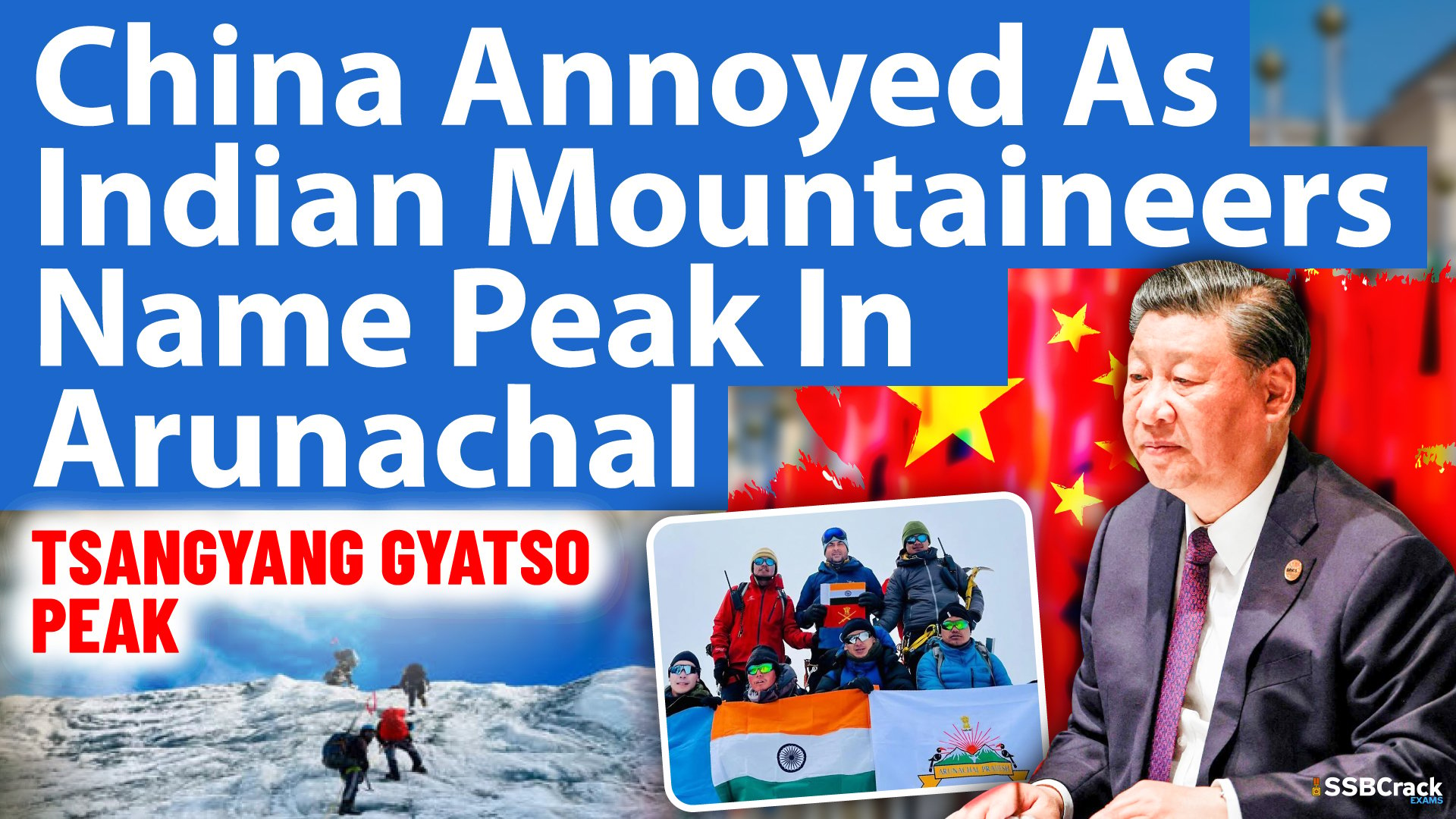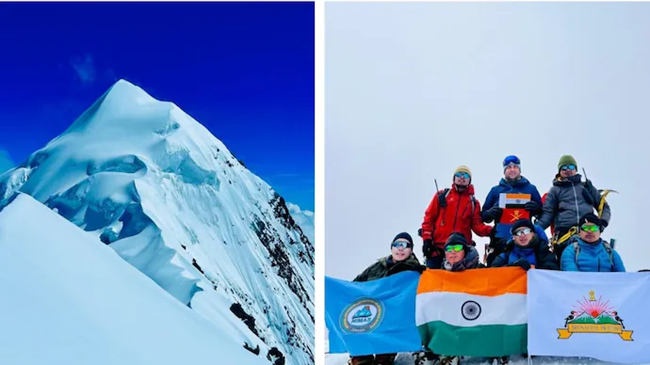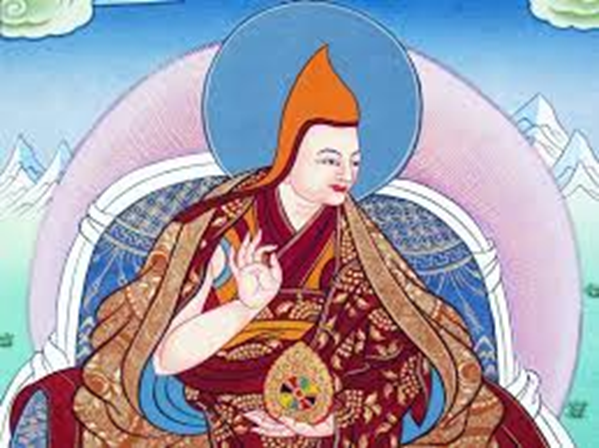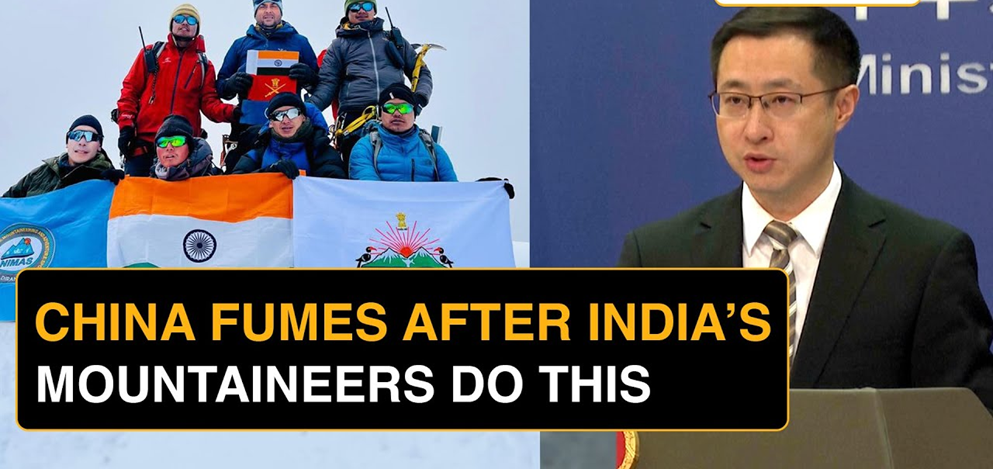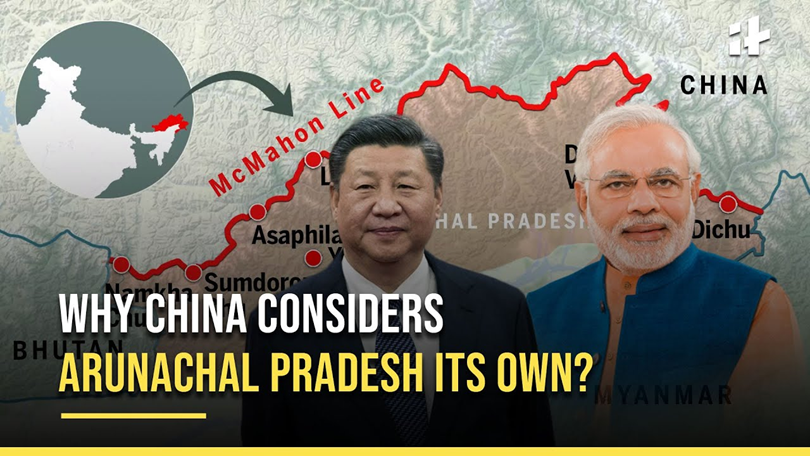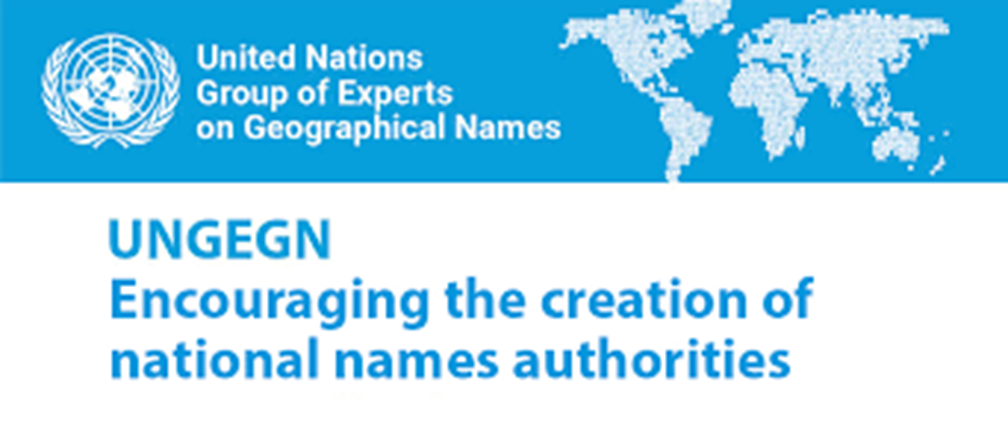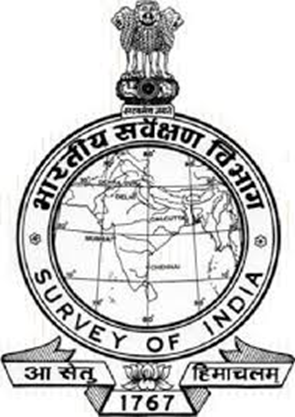China is fuming over Arunachal Pradesh, again. Beijing has taken objection to an Indian mountaineering team naming a previously unnamed peak in the state after the 6th Dalai Lama. China has reiterated its territorial claims over Arunachal Pradesh, hitting out at the mountaineering team for carrying out an “illegal operation” in what it claims is “Chinese territory”.
China Annoyed As Indian Mountaineers Name Peak In Arunachal
Why In News
- China is fuming over Arunachal Pradesh, again. Beijing has taken objection to an Indian mountaineering team naming a previously unnamed peak in the state after the 6th Dalai Lama. China has reiterated its territorial claims over Arunachal Pradesh, hitting out at the mountaineering team for carrying out an “illegal operation” in what it claims is “Chinese territory”.
What Happened
- A 15-member team from the National Institute of Mountaineering and Adventure Sports (NIMAS) under the Ministry of Defence scaled an unnamed peak in Arunachal Pradesh. The team, led by NIMAS director Colonel Ranveer Singh Jamwal, scaled the unnamed and unclimbed 20,942 ft high peak located in the Gorichen range in 15 days.
- They named the summit ‘Tsangyang Gyatso Peak’ after the 6th Dalai Lama Tsangyang Gyatso, who was born in 1682 in Tawang.
- According to a Defence Ministry statement, the decision to name the peak after the 6th Dalai Lama was taken as a tribute to his timeless wisdom and contributions to the Monpa community and beyond.
What Has China Said
- China conveyed its displeasure over the naming of the peak in Arunachal Pradesh. When asked about the naming, Chinese Foreign Ministry spokesperson Lin Jian said he was “not aware”. However, Lin added that Arunachal Pradesh, which Beijing refers to as ‘Zangnan’ is a “Chinese territory”.
- He told the media in Beijing: “It’s illegal, and null and void for India to set up the so-called “Arunachal Pradesh” in Chinese territory,”
- “This has been China’s consistent position,” Lin added.
India-China Rift Over Arunachal Pradesh
- Beijing claims the entire state of Arunachal Pradesh, which it calls “Zangnan, the southern part of Tibet”, as an “inherent part of China’s territory”. The country’s maps depict Arunachal Pradesh as part of China.
- Beijing has been assigning new names to places in the Indian state to assert its territorial claims since 2017. India has rejected China’s claims over Arunachal Pradesh. Responding to China renaming 11 places in the Indian state last year, the Ministry of External Affairs (MEA) said, “Arunachal Pradesh is, has been, and will always be an integral and inalienable part of India. Attempts to assign invented names will not alter this reality.”
- China expresses strong reservations every time any Indian leader visits Arunachal Pradesh. Earlier this year, New Delhi rejected Beijing’s objection to Prime Minister Narendra Modi’s visit to the state.
- After Modi’s trip, the United States recognised Arunachal Pradesh as Indian territory, further angering China which reportedly accused Washington of exploiting the dispute of other countries for its geopolitical interests.
- Earlier this year, the United States officially recognised Arunachal Pradesh as part of Indian territory. China criticised Washington for this recognition and accused the US of instigating and exploiting other countries’ disputes for selfish geopolitical interests.
What Is The Law Behind Naming Peaks
- There is no strict universal law governing geographical names. While the United Nations Group of Experts on Geographical Names (UNGEGN) provides guidelines for the standardisation of names, it mainly encourages nations to establish their own naming authorities.
- In both India and China, the naming of geographical features follows strict guidelines. In India, this process is overseen by the Survey of India, the national mapping and surveying organisation.
- Proposals to name a mountain or peak may originate from local governments, scientific expeditions, or mountaineering clubs.
- These names need to be approved by relevant state and central authorities to ensure they reflect cultural or geographical significance.
- In China, the naming of geographical features, including mountains, is governed by the Regulations on the Management of Geographical Names. The Chinese Ministry of Civil Affairs oversees the standardisation and management of geographical names through its Geographical Names Committee.
